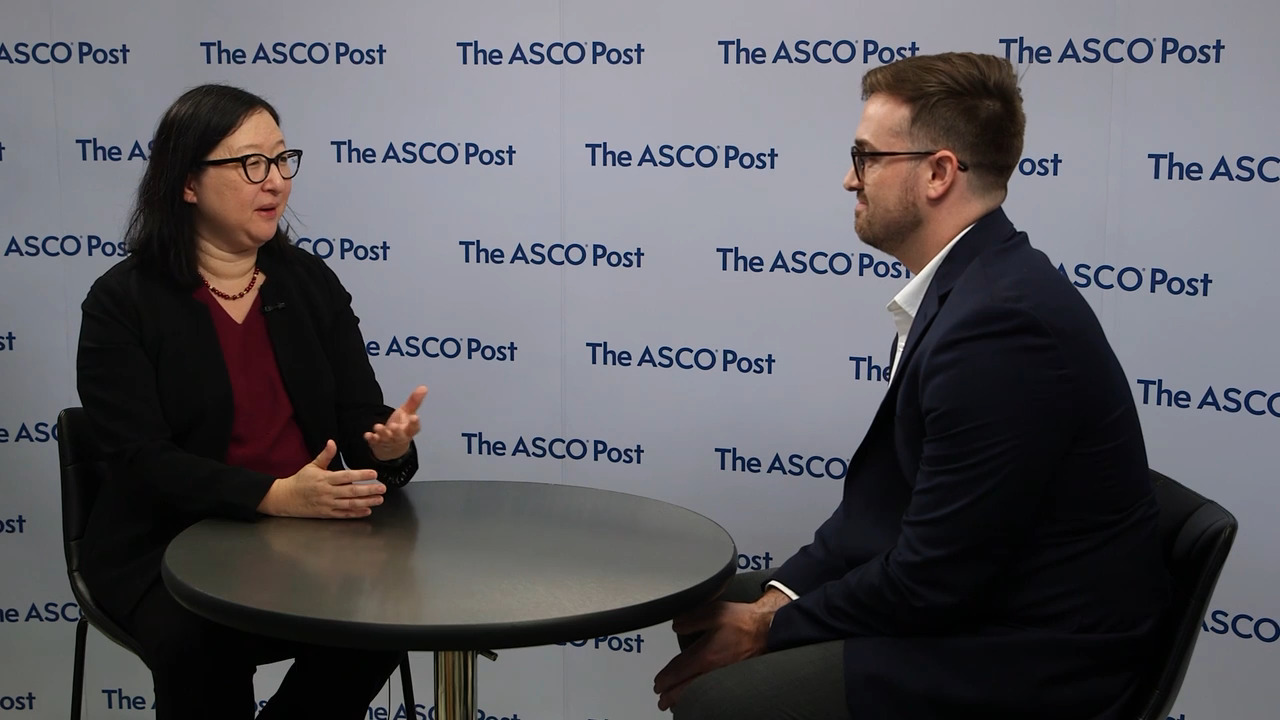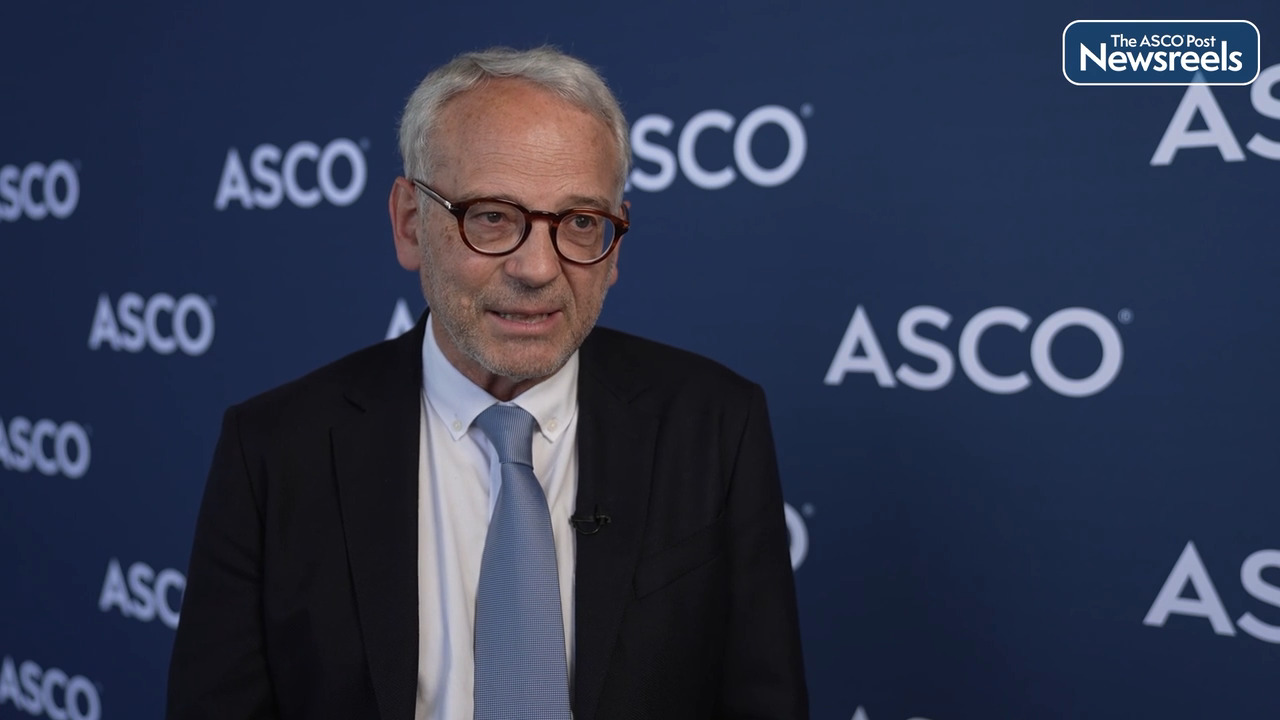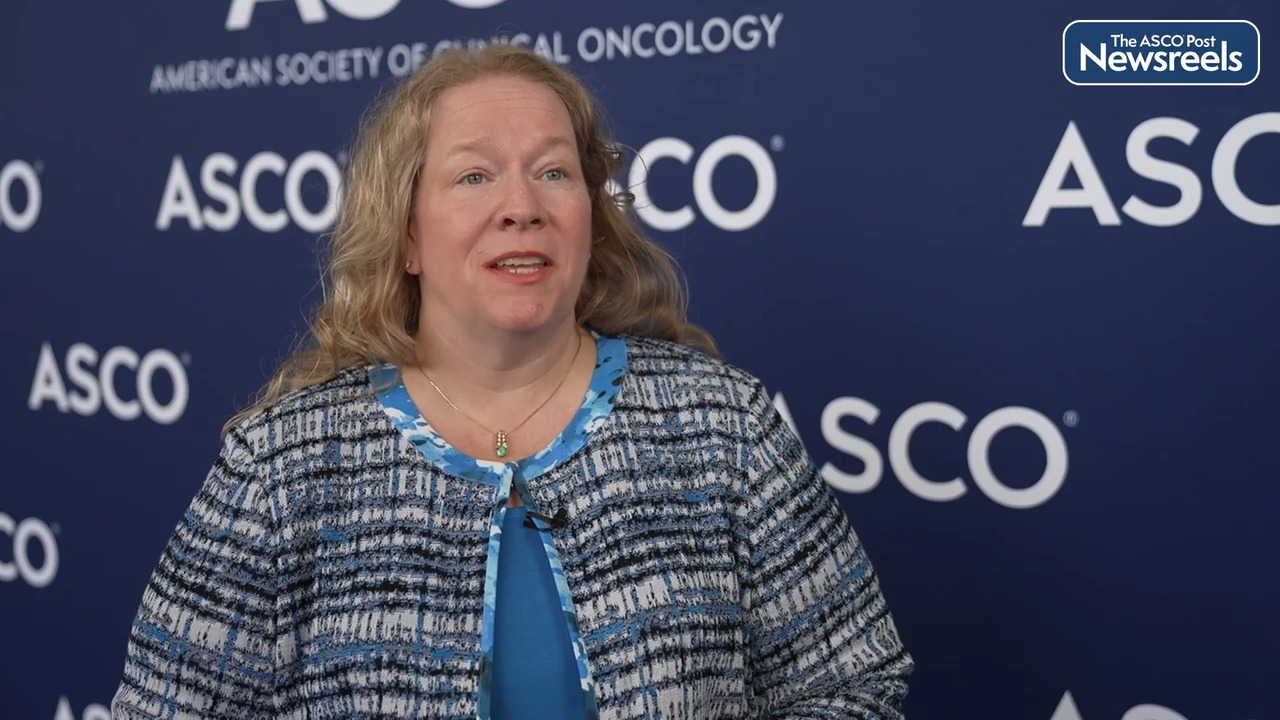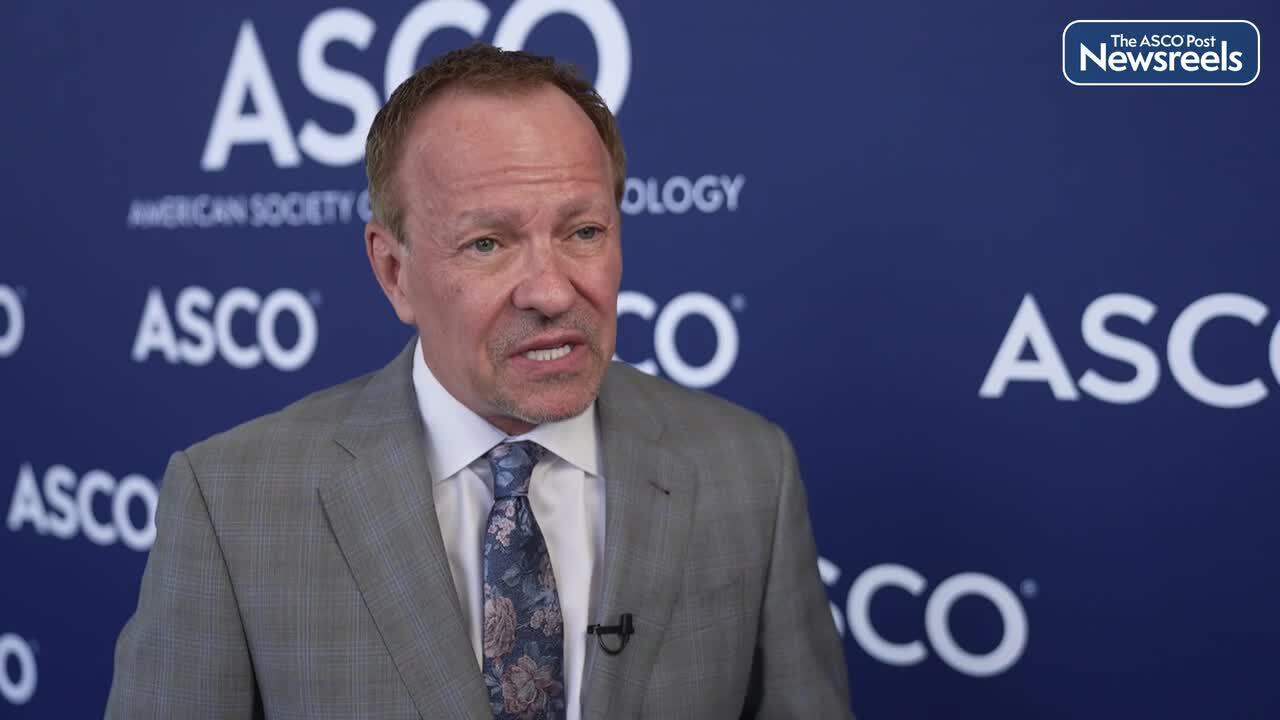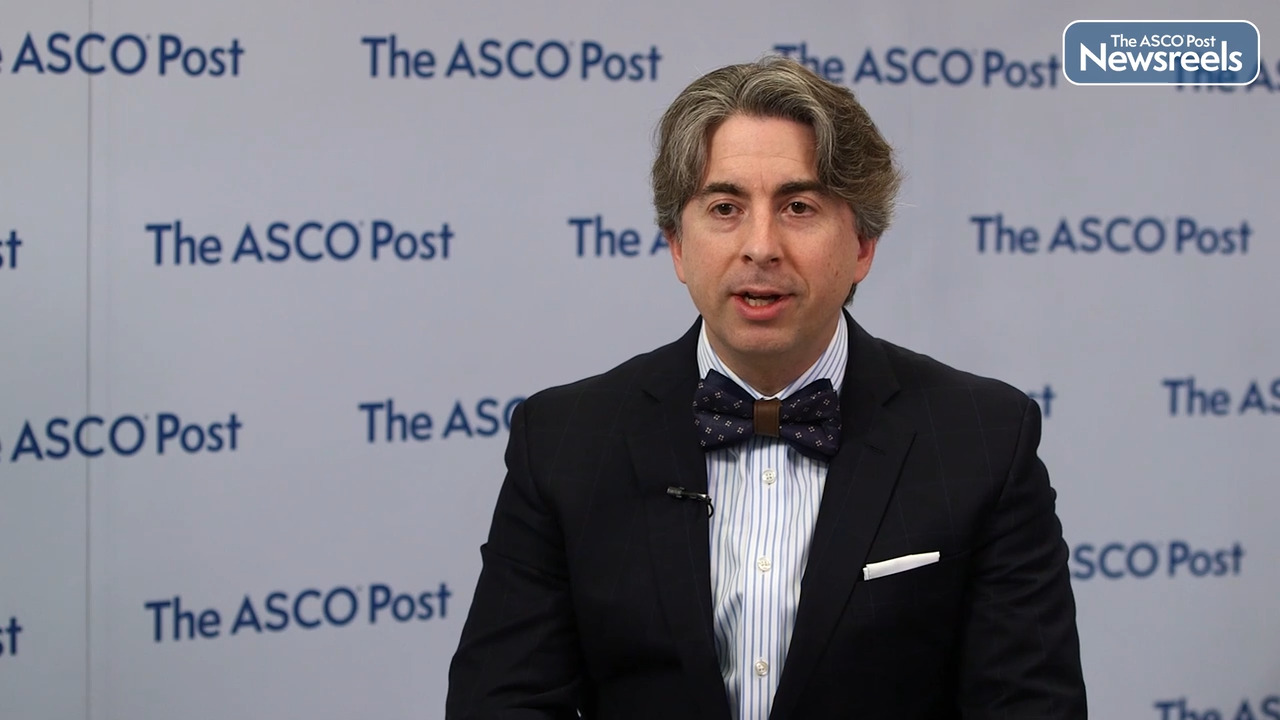LaQuisa C. Hill, MD, on Relapsed or Refractory T-ALL: New Data on CD5 CAR T Cells
2023 ASCO Annual Meeting
LaQuisa C. Hill, MD, of Baylor College of Medicine, Houston Methodist Hospital, discusses study findings showing that CD5 chimeric antigen receptor (CAR) T cells may induce clinical responses in heavily treated patients with relapsed or refractory T-cell acute lymphoblastic leukemia. Manufacturing CD5 CAR T cells with tyrosine kinase inhibitors seemed to improve their potency and antitumor activity (Abstract 7002).
Transcript
Disclaimer: This video transcript has not been proofread or edited and may contain errors.
LaQuisa C. Hill, MD:
The purpose of this study was a phase one clinical trial that was a dose escalation study using autologous CD5 CAR T for treatment of patients with relapse/ refractory T-cell ALL. In the initial cohort, we used our standard manufacturing practice that was overall very well-tolerated. However, in the eight patients initially treated, there were minimal responses seen with only one patient achieving a MRD positive remission.
We subsequently analyzed the cell products and determined that the CAR T cells had a significantly exhausted phenotype as a result of chronic CAR signaling. Therefore, we implemented a manufacturing change to include the use of TKI inhibitors dasatinib and ibrutinib in order to inhibit the chronic CAR signaling and saw a significant improvement in the naive T-cell repertoire and significant reduction in the number of exhausted T-cells in the final product. In the next cohort, we treated a total of seven patients, all manufactured using the TKI inhibition. And amongst those patients there was a total of four MRD negative remissions achieved out of seven patients treated.
The CAR T cell was well-tolerated in terms of CRS and ICANS. No grade-three events occurred. However, there was an increased risk of, or observation of, EBV reactivation with two patients developing PTLD. Currently it is unclear of the direct relationship to the CD5 CAR T cells manufactured with TKI. However, we plan to continue vigilant monitoring for this unexpected side effect and have instituted mitigation plans utilizing prophylactic rituximab as well as ensuring that patients have EBV-specific virus T cells available in the event that EBV reactivation occurs.
Moving forward, we will continue to try and optimize the CAR T cell product both for efficacy and safety and are looking into alternative immune effector subsets, such as virus-specific T cells as the immune factor cell of choice, as well as considering use of third-party or off-the-shelf T cells from healthy donors.
Related Videos
The ASCO Post Staff
Eunice S. Wang, MD, of Roswell Park Comprehensive Cancer Center, and Gregory Roloff, MD, of the University of Chicago, discuss data that are the first to demonstrate post–FDA approval efficacy and toxicity rates of brexucabtagene autoleucel in adults with relapsed or refractory B-cell acute lymphoblastic leukemia. Although the data may confirm high response rates associated with this agent, they also highlight the need for interventions to reduce associated toxicities (Abstract 7001).
The ASCO Post Staff
Thierry Conroy, MD, of the Institut de Cancérologie de Lorraine, discusses phase III findings from the PRODIGE 23 trial, showing that neoadjuvant chemotherapy with mFOLFIRINOX followed by chemoradiotherapy, surgery, and adjuvant chemotherapy improved all outcomes, including overall survival, in patients with locally advanced rectal cancer compared with standard chemoradiotherapy, surgery, and adjuvant chemotherapy (Abstract LBA3504).
The ASCO Post Staff
Arlene O. Siefker-Radtke, MD, of The University of Texas MD Anderson Cancer Center, discusses phase III findings showing that for patients with advanced or metastatic urothelial carcinoma and FGFR alteration who already had been treated with a PD-(L)1 inhibitor, erdafitinib significantly improved overall and progression-free survival, as well as overall response rate, compared with investigator’s choice of chemotherapy (LBA4619).
The ASCO Post Staff
Bradley J. Monk, MD, of the University of Arizona, Phoenix, and Creighton University, discusses phase III findings from the KEYNOTE-826 study of overall survival results in patients with persistent, recurrent, or metastatic cervical cancer. Study participants received first-line treatment of pembrolizumab plus chemotherapy, with or without bevacizumab, which reduced the risk of death by up to 40% in three different subsets of patients (Abstract 5500).
The ASCO Post Staff
Jason J. Luke, MD, of the University of Pittsburgh Medical Center Hillman Cancer Center, discusses adjuvant pembrolizumab, which, in previous results, improved distant metastasis– and recurrence-free survival in patients with resected stage IIB or IIC melanoma vs placebo. After a median follow-up of 39.4 months, adjuvant pembrolizumab continued to show a benefit over placebo, with no new safety signals (Abstract LBA9505).
